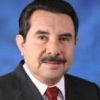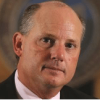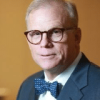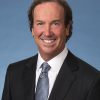A new compact among business, government & American workers
Workers have been underserved by much of America’s economic growth for far too long. And never has this been more apparent than it is now. The Covid-19 pandemic has exposed the underlying fragility and inequities of our economic system, with burdens disproportionately hitting the lowest-paid and most vulnerable.
These systemic problems cannot be solved by any one actor alone. Government must make new rules for a fairer and more equitable economic system. Businesses must develop policies that offer everyone meaningful access to economic security and upward mobility. American workers must have greater voice and be rewarded for the value they create.
Developed by a diverse Commission of the nation’s most respected CEOs, academic, civic, and political leaders, the Framework for Inclusive Capitalism identifies a series of bipartisan principles and recommendations for better aligning government, business and civil society in putting American workers at the core of an inclusive recovery.
Only by improving the lives of workers and having them share fairly in economic gains will our country experience the sustainable growth necessary to restore its promise of greater opportunity and upward mobility for all.
Why this framework is important
Over the past 40-years, America’s policies and practices have led to a decline in economic opportunity and positive outcomes for many workers. Meanwhile historic racial and other social injustices have disproportionately limited the ability of many to share in the American dream.
This Commission therefore came together to identify the foundational elements for building a more Inclusive Capitalism that ensures the promise of economic security and prosperity is available to all.
The vast inequalities in our economic system hurt not only the lives and families of underrepresented populations, but also the wider economy and recovery that they power. Studies indicate that eliminating inequalities across race, ethnicity and gender through improved pay equity, reduced workforce discrimination and levelled educational and training achievements would lead to more productive workforces, higher earnings and a stronger consumer base.
Adoption of this Framework and its principle, policy and practice recommendations will help create an economy that is not only more fair and just, but that also produces more sustainable growth and social equity over the long term. America’s recovery from 40 years of declining worker opportunity and gainsharing, history of systemic racism and inequality, as well as the Covid-19 pandemic require nothing less.
THE ROLE OF DIFFERENT SECTORS
Government
Government
- Modernizing and adapting benefit systems
- Raising the minimum wage
- Funding R&D and infrastructure development
- Mandating workforce development reporting
Private Sector
Private Sector
- Bringing in gig workers
- Combatting discrimination and improving pay equity
- Diversifying workforces at all levels
- Giving workers a greater voice in the corporation and fairer share in productivity gains
Civic Sector
Civic Sector
- Integrating training and education
- Recognizing and rewarding inclusive business practices
- Fostering a race to the top among employers
The framework's key pillars
Create more opportunities
1. Health and Safety
Ensure every worker, including employees and independent contractors, can perform their job safely, with adequate access to necessary protective equipment. Provide protections for workers who witness and report unsafe conditions on the job, with reasonable amounts of paid sick leave.
Every worker, including employees and independent contractors, should be able to do her or his job safely, with adequate access to necessary protective equipment, medical testing and treatment, training and whistleblower protections for workers who witness and report unsafe conditions on the job. These basic protections can be achieved by providing national workplace safety standards to protect all workers from injury and infectious diseases and ensure adequate federal enforcement of these standards.
Additionally, reasonable amounts of paid sick and family leave which protect both workers and firms should be available to all, not only during public health crises, and remain incentivized by government policy.


2. Workforce Retention
Value all workers, whether employees, contractors or others, as creators rather than disposable assets or liabilities. Protect workforces from economic dislocation through job-preserving policies, such as work-sharing during downturns or crises.
Companies should prioritize policies to protect their workforce, including employees and contract workers, from economic dislocation. Such policies recognize that all workers, whether employees, contractors or others should be valued and treated with dignity, not as disposable assets or liabilities. This shift in employer attitude would improve worker retention, expand the quality and capability of our workforce and company output as well as companies’ responsive capacity and consumer health by maximizing job-preserving policies, such as work-sharing. Workers should have input into these policies, including an opportunity to be consulted on basic issues such as scheduling, job safety and security.
In addition, the government should expand, modernize and fund state Unemployment Insurance (UI) systems for furloughed workers and unemployed contractors, including workers in historically underserved communities and transitioning workforces. Relatedly, companies should provide reasonable severance benefits to dislocated workers when job loss is unavoidable, and partner in education, training and career assistance programs, and workers taking advantage of these programs should not be penalized by losing any government or other benefits.
3. Modern Workforce
Account for the evolution of the modern workforce by bringing in and correctly classifying employees in the gig economy. This will ensure the challenges created by the changing nature of employment is not borne only by workers.
Government, corporate and labor policies should take into account the evolving nature of the modern workforce, including standards for correctly classifying workers in the modern economy so that the risks from the changing nature of employment are not borne just by workers. Federal and state policies need to adapt to the changing nature of the labor market by ensuring that labor laws are modernized for this new environment, workers are properly classified, and ensure that all workers are properly paid for their work.
Government must have adequate resources to ensure that companies properly classify their workers, and companies should not unfairly transfer economic risk to workers by overusing and relying on the “independent contractor” model. Government, business and labor should work together to innovate new employment models and rules, recognizing that some workers may prefer the greater flexibility that part-time work and/or contractor models may provide, while also ensuring that these models provide essential worker needs such as benefits and workforce sharing agreements.


4. Technology and Opportunity
Support communities and regions impacted by unemployment due to new technologies by ensuring workers share in the benefits of any jobs created through new public investment for economic development, public services and infrastructure.
Technological change does not have to lead to job loss or the displacement of workers. Government policies must be adopted to ensure that increases in productivity benefit the workers who use new technology to be more productive. Valuing the expertise and contribution of workers, and involving workers early in the decision-making process, are often the key to successful innovation.
Government policy should also assist historically disadvantaged communities, and regions as well as those impacted by job loss as a result of new technologies, by ensuring workers share in the benefits of jobs created through new public investment for economic development, public services and infrastructure. Such assistance would support worker access to quality-assured education and training based on positive outcomes providing workers and employers with new skills that are in demand
Companies should seek to expand job opportunities for their employees whose jobs are disrupted by technological change. This effort should include developing worker opportunity programs, both locally and across the country, to coordinate local education and training with the needs of employers so that workers can be trained for better jobs and empowered to choose their area of work.
5. Inclusive Workforce Models
Innovate how businesses recruit, reward and invest in a diverse workforce by incentivizing a race to the top among employers seeking to become more inclusive workplaces.
Government, workforce development organizations, and employers should seek to understand the key factors for success in developing a more diverse and inclusive capitalism workforce model. The Commerce and Labor Departments should work together with corporations to accelerate innovation in how corporations recruit, reward and invest in a diverse workforce. The Departments could both incentivize and recognize a “race to the top” by stimulating business participation in a competition to be the “most inclusive company for workers.” This would require companies to develop and report proactive plans for reaching employment and pay equity across gender, race and ethnic gaps as well as diversity and governance indicators by employee category, such as workforce composition, pay equity, reward benefits, investments in training, and diversity, equity, and inclusion metrics.
While there currently exist several rating mechanisms for corporations in the diversity and inclusion sphere, the government has not endorsed a set of uniform criteria to rate and recognize those companies with inclusive worker treatment, similar in spirit to the Malcolm Baldridge award’s success incentivizing and recognizing performance excellence. Adopting uniform standards would affect corporate behavior toward workers in the way that the LEED system impacted green building development, by expanding the range and quality of information and spurring market competition.


6. R&D
Substantially expanding government investment in groundbreaking programs that align its own spending and priorities with business and worker benefits. This will strengthen international competitiveness, drive economic growth and generate good jobs.
Reinvigorate America’s legacy of basic R&D, which pioneered new technology and opportunity pathways for workers from telecommunications to computing to energy development, by substantially expanding government investment in groundbreaking R&D with full lifecycle planning that aligns government spending and priorities with business and worker benefits. This will strengthen international competitiveness, reinforce economic growth and create new good jobs.
Government must return to historical standards for R&D funding by targeting at least 1% of GDP for basic federal R&D funding, including in clean energy, equitable applications of artificial intelligence, medical and health science and other leading-edge technologies. To make this policy effective and share the returns from this investment, government should link this investment with equity as appropriate, so that taxpayers share in the returns that are generated by this public investment.
A significant amount of this investment should aim to counterbalance trends toward geographic inequality, including between prospering and disadvantaged regions of the country, with R&D, workforce, business linkages and allied investments targeted to generate inclusive local economic growth.
Encourage policymakers and local leaders to spur the best local and regional R&D programs for inclusive growth by running national competitions with inclusive development goals and ensure that historically disadvantaged regions are able to successfully compete for new federal R&D dollars. Part of this investment could be paid for through a “National Innovation Dividend” from real estate value increases and other growth driven by local development.
7. Combating Workplace Discrimination
Adopt and enforce vigorous policies and practices to combat systemic discrimination at all levels. This includes eliminating bias from the recruitment and training programs and ensuring reward and promotion processes recognise more inclusive hiring and advancement opportunities.
Government and business at all levels should adopt and enforce vigorous policies to combat systemic discrimination in all forms, but particularly discriminatory practices that impact underrepresented populations in the workplace. Employment outcomes for women, people of color and persons with disabilities have been so uneven for so long that combatting them requires government policies and employer practices which go far beyond the existing federal legal and equal opportunity standards’ bare minimum of non-discrimination in hiring and firing processes.
From setting job requirements that facilitate inclusive employment, to extending recruitment to ensure that sourcing includes candidates from marginalized communities, to rewarding underrepresented employees with management promotions, employers should be incentivized to remove discrimination barriers throughout the employment cycle. This process begins with the proactive recruitment and consideration of underrepresented populations in candidate pools, extends to the fair evaluation of workers regardless of their race, ethnicity, gender, or disability, and continues throughout the employment chain to ensure that underrepresented populations are retained and promoted at the highest levels of our largest corporations.
Such recruitment efforts, promotion practices and training investments, which actively include and engage underrepresented populations, should be recognized as standards of best practice.
In addition, corporations should diversify their top executives and boards to better reflect the diversity of the country, which is both good business and good policy. Government must also ensure vigorous and proper enforcement in the workplace of the anti-discrimination provisions in the Civil Rights Act of 1964 and Americans with Disabilities Act of 1990.

Expand the workforce
1. Infrastructure Development
Modernize U.S. infrastructure to safely open long term career pathways for new workers as well as for the 17+ million infrastructure workers who already keep America running and connected.
Commit the United States to standards of excellence and safety through a new, generational investment program that modernizes U.S. physical and technology infrastructure. Our country should always aspire to raise its average physical infrastructure grade to “A” and not settle for the existing rating of “D+” as rated by the American Society of Civil Engineers. This investment program must include achieving the FCC National Broadband Plan to ensure that every American household has affordable broadband access.
This should comprise a renewed “big build” of new infrastructure such as 5G networks and a “big repair” of existing infrastructure to make the United States a leader in manufacturing and industry, health and housing, and new technologies necessary to meet current and future challenges such as the pandemic, climate change, and the shift to the digital economy. This would be consistent with historic efforts that built and maintained the interstate highway system and the Great Depression-era public buildings, bridges, and Hoover Dam that helped fuel our economic recovery and remain standing and in need of repair today.
Moreover, with appropriate protections, skills training, and “hazard” or premium pay for work during heightened risk, infrastructure programming would safely open long-term career pathways for new workers as well as the more than 17-million infrastructure workers who already keep America running and connected.


2. Infrastructure Funding
Innovate how infrastructure development is paid for by providing private funding for public works that broadly benefit business and investing in historically low-income communities.
Innovations in infrastructure development should be matched by innovations in revenue generation to help fund the public works which would broadly benefit our economy and business. Such innovative infrastructure funding should not mean the privatization of public ownership or the private operation of public works. There are many ways to fund such capital programs, such as developing a specific new infrastructure fund. The infrastructure fund could be established with reasonable gasoline or carbon taxes, the issuance of new federal infrastructure bonds (at a time when long-term interest rates are at historic lows) paid out through newly dedicated revenue, and other measures which could support the long-term financing necessary to raise new revenue for the big build and big repair projects whose returns on investment will serve business and the country by modernizing our logistic networks and environs.
According to a 2020 McKinsey report, growing infrastructure capability in just four sectors—mobility, healthcare, manufacturing and retail—could boost GDP by billions of dollars. Infrastructure spending, especially federal spending, should also be consistent with eradicating historic practices that led to racial and economic inequality. Government spending should ensure investment in historically low-income communities by requiring application of the 10-20-30 formula, as piloted in a number of federal programs over the past decade and championed by Congressman James Clyburn with bipartisan Congressional support. This formula would be applied evenly throughout rural and urban regions to allocate 10% of funding to counties where 20% of residents have lived below the poverty line for at least 30 years.
3. Lifelong Learning
Build and sustain a virtuous circle of opportunities, from education and post-secondary training to reskilling workers in digital and technical fields that can empower them to fulfill better, available jobs.
Boldly commit to lifelong learning by building and sustaining a virtuous circle of opportunities from education and post-secondary training to reskilling workers in the digital and technical fields that are growing in need. Making quality, affordable and effective training more readily available both meets business demand for skilled workers and empowers workers in fulfilling better, available jobs in their chosen areas of work.
Training should be made available to all workers through a combination of government and business investments, with choice made available to workers in spending training dollars. This can include the creation of individual training accounts, where workers are provided with some government funding that is portable and employers can contribute additional funding. Public funding should be provided to programs that show economic value and positive outcomes for workers, rather than programs at only certain providers or programs of a certain format or length.
Companies should use training programs to manage advances in technology through reemployment and retraining rather than involuntary separation and/or outsourcing.


4. Training Institutions
Fund effective training models, programs and institutions, including by reducing or eliminating tuition fees to community colleges while helping address the needs of students across disadvantaged backgrounds.
Training policy should also include providing significant new funding to effective training and institutional models, including a federal grant program for community colleges to both significantly reduce (or eliminate) tuition and meet the needs of students across disadvantaged backgrounds with educational resources which include scaling digital learning to provide accessible options for adult workers.
Along with this funding for community colleges, it is important to include other programs which also educate a large share of underrepresented, lower-income and adult workers, along with the two-year programs of many colleges and universities, particularly the Historically Black Colleges and Universities, Hispanic-Serving Institutions and other Minority-Serving Institutions, such as public colleges and universities that serve more students of color and Americans of all backgrounds who have limited means.
Funding should also expand the successful models of registered apprenticeship, sectoral and joint labor-management training programs throughout the economy and link additional skills development to identified career paths in communities and markets, while limiting occupational licensing requirements to those jobs where it is truly necessary. This should include place-specific insights on the growth and decline of occupations, as well as reskilling infrastructure jobs to create opportunities for those who need it most.
5. Benefit Portability
Modernize and align state-by-state benefits to create portable programs that ensure basic worker protections are available to workers regardless of their employer, contractor status or jurisdiction.
Government entities should modernize the patchwork of federal, state and local benefits, including Unemployment Insurance (UI) systems and their revenue models, to create portable benefits programs that ensure basic worker protections, like paid leave, sick days, workers’ compensation and UI eligibility, are made available to workers regardless of their employer, contractor status or jurisdiction. Such a portable set of basic minimum benefits would increase worker choice in addition to economic productivity and business efficiency through improving employee well-being, supporting worker mobility, and increasing firm competitiveness within labor markets. Government must also ensure that the expansion of portable benefits does not lead to companies misclassifying workers as independent contractors or being subject to a reduced level of benefits.
UI reform and ensuring the portability of other such basic benefits as paid leave, sick days and workers’ compensation should be the starting point of more comprehensive benefit modernization to meet changing business and worker needs in an increasingly digital, mobile and gig economy.
Apply such benefit programs equally to workers and executives and encourage companies to adopt wellness policies that include protecting workers’ time off.


6. Tax Credits
Double funding to the Earned Income and Child Tax Credits to help ensure healthful, minimum living standards among lower-income households, without allowing employers to shift their labor costs onto the government.
The Child Tax Credit (“CTC”), currently at $2,000 per qualifying child per year, and Earned Income Tax Credit (“EITC”), as low as $538 per childless household annually, do not sufficiently serve their intended purposes of helping ensure a healthful, minimum living standard for lower-income households. This is due to a combination of the credits’ low payments, lump-sum delivery and complex filing barriers which amount to many households not collecting their full credits, borrowing against third-party debt collectors and continuing to subsist in acute poverty.
Funding for EITC and CTC should be doubled to raise credit amounts, expand their eligibility and reach 100% utilization by streamlining their refundability at both federal and state levels and making them easier to access by all eligible households, including persons with disabilities, in a system of periodic payments available outside tax time which addresses needs throughout the year.
These programs should be developed and expanded to ensure that their primary beneficiary is the worker and not serve as a subsidy to the company by shifting labor costs onto the government. Increasing the minimum wage and the EITC together, as also proposed in Pillar Three, will prevent low-wage employers from capturing the benefits of the EITC by reducing wages.
7. Workforce Investing
Revise accounting standards to incentivize greater company investment in workers, thereby ensuring more profits are used for workforce training and development than for dividends to stockholders.
Amend and revise tax and accounting rules and standards so investments in labor are treated for tax purposes at least as favorably as investments in plant and machinery, so that companies are not disincentivized to invest in workers.
In addition, investing in human capital should enjoy more favorable accounting treatment so that corporate management is not solely focused on making distribution of profits to stockholders. Rather, the goal of changing these rules should be to encourage businesses to invest more of a company’s profits into more productive investments in workers’ wages and training, which will in turn spur growth, innovation and more future profits.
Encourage companies to invest for long-term growth by extending the time period assets must be held to qualify for “long-term” treatment under the capital gains provisions of the tax code.

Enable fair gainsharing
1. Role of the Corporation
Define an accountable corporate purpose that eliminates incentives for short term financial engineering, broadens corporate stakeholders and shares productivity gains with the workers who fuel them.
Government should work with business and labor to establish new sets of rules for our modern economy to eliminate incentives for short-term financial engineering, broaden corporate stakeholders and define a corporate purpose to which businesses’ performance can be accountable to.
Federal and state laws should facilitate the ability of large corporations to formally broaden the stakeholders and communities to which they are responsible beyond stockholders. This can include encouraging corporations to become public benefit corporations as well as encouraging corporations to make themselves responsible for demonstrating their material and positive impact on society and the environment. For example, as currently conferred in many states yet uniquely enforced in Delaware, the benefit corporation model can task boards with the purpose of creating value, weighing needs and allocating resources for all corporate stakeholders including workers, not just shareholders.
Companies should also ensure that their employment policies provide that workers share in the productivity gains which their jobs help create. This includes the ability of workers to fairly negotiate with companies through democratically elected representatives on basic issues such as pay, benefits and working conditions, especially at large companies, regardless of whether such companies are privately held or publicly traded.


2. Worker Voice
Ensure all workers can contribute to governing decisions, such as whether capital is used to pay shareholders, reward workers or internally finance workforce investments.
Large companies should ensure worker voice contributes to governing processes, whether through a board-level workforce committee/subcommittee or other forms that are representative of worker needs which can provide meaningful input to the company’s board of directors. This process cannot be viewed as a substitute or interfere with worker choice in whether or how to collectively organize, protest and bargain but should ensure that worker issues and concerns are raised at the board level. These representative bodies should be involved in significant business issues such as how capital should be deployed between payments to shareholders versus increased payments to workers by increased wages and benefits, as well as whether to internally finance investments in workforce and R&D. Companies should also be encouraged to harness technology in developing communication mechanisms to receive worker advice, feedback and complaints in ways which strengthen workers’ ability in contributing to company management and governance by having their voice heard.
Worker representatives should also have opportunity to review key employment policies, goals and objectives, including accessing company audits of worker treatment and pay equity across race, ethnic and gender lines, with specific focus on the company’s lowest paid workers and contract workers.
All companies and workers should understand their obligations and rights under federal and state law that prohibits employers from creating and dominating employee organizations. All workers, regardless of immigration or contract status, should have adequate protection from employer interference, pressure, coercion and retaliation in their choice of whether to organize, as well as protection from employer surveillance (including on electronic devices), captive audience meetings, worker firings or other illegal measures. All employers have their right to communicate to and present their case to workers.
3. Living Wage
Raise the federal minimum wage from a starvation wage to a living wage by rapidly moving toward $15 per hour. Also increase training opportunities and expand programs like the Earned Income and Child Tax Credits.
The persistence of poverty across America necessitates an urgent and coordinated mobilization of the nation’s full policy arsenal. Deployed along a three-pronged strategy, responding to poverty requires a combined effort by the government, and private sectors to provide poor households with the tools necessary to fully benefit from the new Opportunities and Expanding Work Force proposals set forth under Pillars One and Two. As described in these Pillars, this includes creating opportunities for workers to obtain new skills and expanding such programs as the Earned Income Tax Credit and Child Tax Credit. However, this effort must also include increasing the minimum wage.
An individual who works 40 hours per week, 52 weeks per year at the current federal minimum wage of $7.25 per hour makes $15,080 per year before taxes. That amount has not increased since 2009, the longest period of stagnation in the history of federal minimum wage law, failing to maintain its purchasing power, especially for such necessities as health care, education, housing, quality childcare and food. The minimum wage should be raised to be a living wage, not a starvation wage.
The immediate steps to address these issues should include plans to rapidly raise the minimum wage toward $15 per hour nationwide in coordination with the increased training programs and policies outlined above. New wage policy should also address inequities within the minimum wage law itself, including ending laws that permit a “sub-minimum wage” and taking strong enforcement action to prevent “wage theft” against vulnerable workers. In addition, an increased minimum wage should not be used to deprive workers of good benefits and other opportunities that are necessary to create good jobs for workers. For example, companies should provide additional rewards to workers who incur significant occupational risk during times of emergency or heightened threat, such as with appropriate “hazard” pay or additional benefits.
To ensure the effectiveness of such raises for both low-wage workers and businesses, greater training and reskilling opportunities must be provided so that workers develop the technical skills that employers may demand and which will prepare workers for the future jobs that higher-wages produce.
Companies should also continue ensuring workers can accomplish their jobs with clarity on such things as regular work schedules and the ability to effectively communicate with their company about work-related issues, including by utilizing advances in communications and digital technology.


4. Worker Reward
Treat worker reward holistically, encompassing not just living wages but also adequate access to healthcare, sick leave and other policies that keep them healthy and productive, such as accommodative or flexible scheduling.
Government policies should ensure that businesses treat worker reward holistically, to encompass more than just paying a living wage, so that workers have adequate access to an opportunity for a secure retirement as well as healthcare, sick leave and other policies which keep workers healthy and productive, including policies that are accommodative of flexible scheduling, which also build upward mobility and workforce retention.
Even when employers aim to raise the nominal pay of lower-income workers, such employer-provided benefits remain a critical reward component of the living wage. The comprehensive benefits of holistic worker reward additionally provide pathways for greater promotion opportunities and mobility among lower-income, underrepresented populations.
Broad-based equity awards and profit-sharing arrangements with the workforce should be encouraged but are not a substitute for a living wage with good retirement and healthcare benefits. Broad-based equity awards can be incentivized fiscally by limiting the tax deductibility of executive compensation programs, including equity grants, unless workers at all levels of the business participate in comparable programs.
5. Executive Compensation
Link executive compensation to how a company meets broader corporate and workforce goals, particularly those impacting pay equity along race, ethnic and gender lines. Ensure lengthy holding periods for executive equity grants to better reward long term growth.
A company’s stock performance should not be the primary benchmark or means for executive compensation, and boards should be encouraged to link executive compensation with how the company meets its broader corporate goals, particularly those that impact worker reward and equity along race, ethnic and gender lines. This includes key employment policies, such as what a company pays and the benefits it provides workers, including contract workers, compared to executive compensation, and how the company invests in workforce training and R&D, as disclosed through reporting of standardized, comparable metrics.
Equity grants awarded to executives should have lengthy holding periods and be tied to various metrics so that executives are incentivized to act for the long-term and not engage in financial engineering to increase the company’s stock price at the expense of either long-term investors or the company’s other stakeholders.

6. Universal Disclosure
Develop uniform and mandatory disclosure standards that encompass a company’s broad range of stakeholders, especially its treatment of workers areas like pay equity, benefits and training investment, as well as the number of independent contractors working on a regular basis.
The SEC should work with companies, investors, representatives of labor and environmental groups and other interested parties to lead the development of uniform and mandatory disclosure standards encompassing companies’ full range of stakeholders, including not only the environment, but also workforce investment, as has been recommended by the Commission’s Investor Advisory Committee, and how corporate policies affect workers and their communities.
As part of this process, the SEC should mandate the reporting of standardized, comparable metrics about human capital management, considering corporate treatment of workers in such critical areas of worker reward, including wages and benefits pay equity, across gender and race, workforce investment, including training and reskilling, workforce turnover and the metrics regarding use of independent contractors working full-time or on a regular basis for the company.
These rules should be applied to all economically significant enterprises regardless of whether a company is publicly traded so that companies are not disincentivized from accessing the public markets.
Yet it is not enough to require the companies that make products and deliver services to disclose their efforts to promote these values, if the institutional investors who control the stock of these companies are not required to provide the same disclosures. Comparable disclosure requirements should be developed so that the institutional investors through which many Americans are required to save for retirement disclose how they take into account important Employee, Environmental, Social and Governance (or “EESG”) issues.
7. Retirement Access
Expand all workers’ access to portable, high-quality defined benefit or contribution retirement plans that increase the scope of matching programs and permit plan fiduciaries to consider the long term interests of beneficiary communities.
Expand access to quality retirement programs, where ERISA fiduciaries are permitted to consider the interests of beneficiaries and their communities, by adopting policies to encourage companies to offer a defined contribution plan or defined benefit plan, once common for workers in the private sector, for all workers, with funds ultimately tied to the worker and automatically portable between jobs to reduce premature the cash-out rates which particularly affect workers of color. Retirement funds should also be able to consider the overall economic interests of their worker/investors and other Employee, Environmental, Social and Governance (or “EESG”) issues in making investment choices, including allowing pensions and retirement funds to set investment policies that favor domestic job creation and avoid job losses or outsourcing.
Additionally, tax laws should prohibit companies or investors from being able to benefit in any way from any “excess” amounts in such plans; rather, all “excess” funds should be paid to the company’s workers. Similarly, corporate bankruptcy law should be amended to prioritize workers’ retirement plans over other corporate debts to prevent employers from shedding their obligations.
With fewer than half of all workers participating in an employer sponsored retirement plan, employers should be incentivized to address such low coverage and participation rates by making retirement plan contributions for all employees regardless of workers’ ability to make matching contributions. In addition, to the extent workers are providing defined contribution plans, companies should be incentivized to significantly increase the scope of matching programs, particularly for part-time workers, and include options for guaranteed retirement contracts so their income annuities better reflect the guaranty of defined benefit pensions, whose availability has been increasingly usurped by defined contribution plans.

The Commissioners

Zoë Baird

Steve Bartlett

David J. Berger

Xavier de Souza Briggs, PhD

Walter G. Bumphus, PhD

Ursula Burns

Antonio Flores, PhD

Roger W. Ferguson, PhD

Lynn Forester de Rothschild

Glenn Hubbard, PhD

Andrew McAfee, PhD

Ted Mitchell, PhD

Janet Murguía

Eduardo Padrón, PhD
![a9Hyt6dB_400x400[1] a9Hyt6dB_400x400[1]](https://coalitionforinclusivecapitalism.com/wp-content/uploads/elementor/thumbs/a9Hyt6dB_400x4001-q4j5s5f3l61btc1xyqva0c3gaf72me8u1f87xkavag.jpg)
David M. Rolf

Dr. Rajiv J. Shah

Leo E. Strine, Jr.

Laura D. Tyson, PhD

Darren Walker

Ashbel C. Williams Jr.

Thomas L. Williams
Affiliations are for identification purposes only